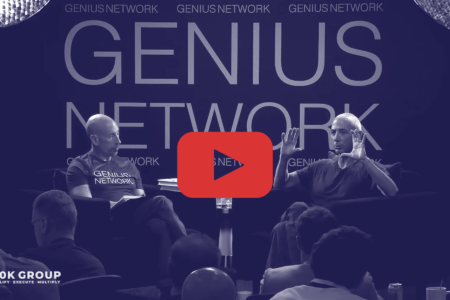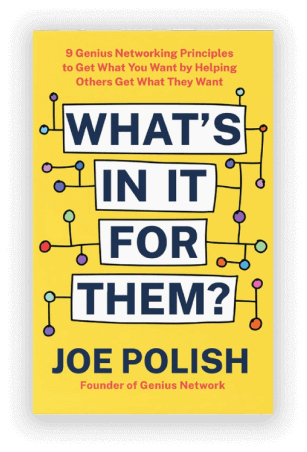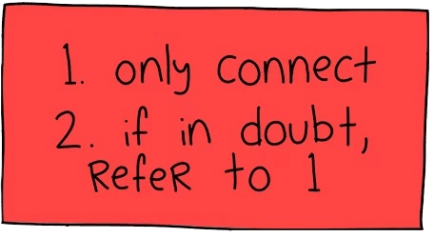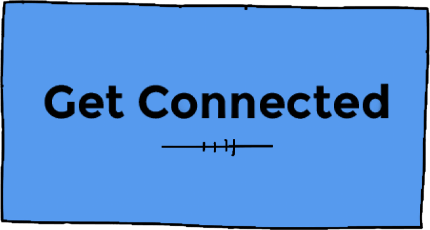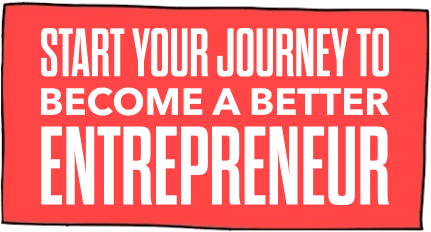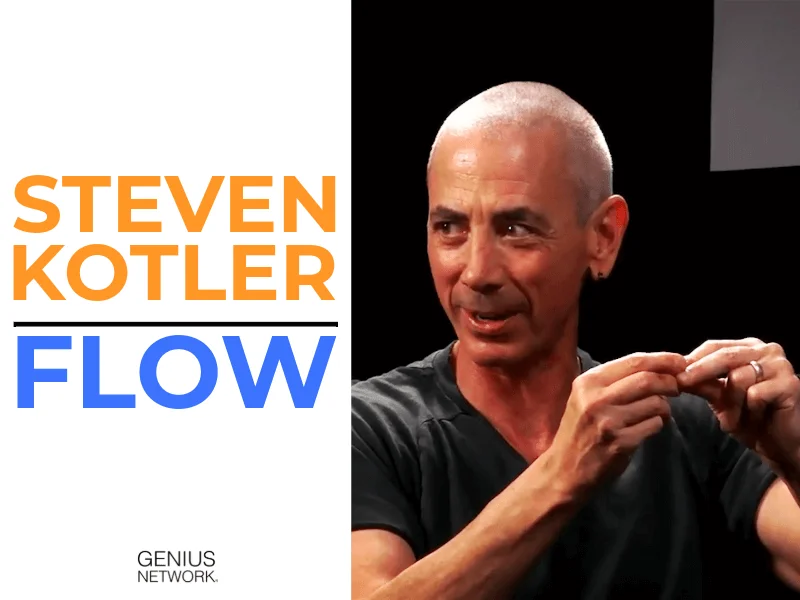
500% More Productive: The Power of Flow to Turn the Impossible into the Inevitable with Steven Kotler and Joe Polish #216
Episode Summary
Joe Polish interviews Steven Kotler, renowned expert on peak performance and flow states, to explore the science behind unlocking human potential. They dive deep into how flow can alleviate loneliness, enhance creativity, and even help individuals in recovery from addiction by creating connection and purpose.
Here’s a glance at what you’ll discover from Steven in this episode:
- Unlock the power of flow and achieve a 500% increase in productivity! Steven Kotler reveals the science behind how top performers like Richard Branson and Navy SEALs enter flow states that amplify their results beyond imagination.
- Why traditional self-help fails, and what you can do to tap into your biological potential for high performance. Steven shares why most personal development advice is misguided and how you can use neurobiology to transform your life.
- The one mental shift that allows elite athletes to make the “impossible” possible. Learn how breaking free from limiting beliefs can apply to your everyday achievements.
- Harness the power of group flow to solve humanity’s greatest challenges (Steven explains why mastering flow at a collective level could be the key to global cooperation and problem-solving on an unprecedented scale.)
- How to hack your mind for superhuman creativity—400% to 700% boosts in creative output! Discover the techniques Steven uses to help individuals and teams innovate faster than ever before.
- Why curiosity is the starting point of a high-performance life—and how to build curiosity into passion, purpose, autonomy, and mastery, following the blueprint Steven shares for unleashing intrinsic motivation.
- The surprising link between flow states and recovery from addiction (Hear this take on why the opposite of addiction isn’t sobriety—it’s CONNECTION… and the ultimate form of connection is found in FLOW.)
- How “microflow” can heal your body and boost your immune system. Steven’s mind-blowing story of how he beat Lyme disease through the power of flow, unlocking new levels of health and vitality.
If you’d like to join world-renowned Entrepreneurs at the next Genius Network Event or want to learn more about Genius Network, go to www.GeniusNetwork.com.
WHAT'S IN IT FOR THEM?
Get the first chapter for FREE and a limited-time viewing of "Connected: The Joe Polish Story"
Show Notes
What is Flow?
- Scientific Definition: Flow is an optimal state of consciousness where we feel and perform our best. It’s a state of heightened focus and immersion, where time seems to warp—either speeding up or slowing down—and the inner critic (the voice in your head) quiets.
- Neurobiology of Flow: Steven breaks down how flow triggers neurobiological responses that enhance performance across physical, mental, and emotional domains.
The Origins of Flow Research:
- Mihaly Csikszentmihalyi: Steven studied under Csikszentmihalyi, the pioneering psychologist who first coined the term “flow” in his work Flow: The Psychology of Optimal Experience. They expanded on these ideas, learning how to “hack” flow to make it more accessible.
- Evolution of Flow Science: The shift from psychology-based models to a focus on neurobiology, which allows flow to be scalable and accessible to anyone, regardless of personality differences. This contrasts with traditional self-help and coaching approaches that often fail to scale across different individuals.
Why Personality Doesn’t Scale, but Biology Does:
- Kotler explains how traditional psychology-based coaching often fails because it’s based on the personality and personal experiences of the coach, which doesn’t work for everyone. In contrast, neurobiology offers a universal approach to human performance, as our brains are wired similarly through evolution.
Flow in Action: The Punk Rock and Action Sports Origins:
- Steven shares personal stories from his time in Cleveland’s punk rock scene and the action sports world of Squaw Valley, where he witnessed the transformative power of flow. Both subcultures, against all odds, produced culture-shifting figures and innovations due to their ability to bond together and enter collective flow states.
- Action Sports: In the 1990s, the impossible became possible, as athletes consistently pushed human limits using flow states. This led to the creation of the trillion-dollar action sports industry.
Healing from Lyme Disease with Flow:
- Steven’s personal experience with Lyme disease: While battling the debilitating illness, he used flow as a tool for recovery. This experience taught him how flow could help not only in peak performance but also in healing and recovery, moving him from a severely diminished state back to high functionality.
The Flow Triggers:
- There are 28 known flow triggers—conditions that enhance the likelihood of entering a flow state. These triggers can be individual or group-based, and they range from deep focus to risk-taking and immediate feedback.
- Group Flow: Flow can also happen in teams or large groups, leading to extraordinary cooperation. Steven describes “communitas,” the feeling of unity at concerts or large events, as an example of flow at scale. He believes that learning to harness group flow is the key to solving global cooperation challenges.
Motivation and Flow:
- To access flow, individuals must first establish basic safety and security. Steven highlights that financial and personal stability are prerequisites for pursuing higher states of performance.
- The next step is intrinsic motivation, which flows through a hierarchy: curiosity, passion, purpose, autonomy, and mastery. When these elements align, flow becomes easier to achieve and maintain.
Critiquing the Self-Help Industry:
- Where many self-proclaimed experts promote ideas that worked for them but aren’t universally applicable. Steven points out that these methods can be dangerous and ineffective because they ignore neurobiological principles.
Steven’s View on Global Cooperation:
- Group Flow at Scale: To solve large-scale problems such as climate change or inequality, humanity must learn to achieve flow on a societal scale. He sees this as the next frontier for global cooperation, which has traditionally only been achieved during crises like wars or pandemics.
- The Pandemic Example: While controversial, Kotler suggests that the global response to COVID-19, particularly the rapid development of vaccines, was an example of large-scale group flow.
The Neurochemical Benefits of Purpose and Connection:
- Steven Kotler explains how adding others into the equation of purpose unlocks pro-social chemicals like oxytocin and endorphins. This leads to heightened well-being and high performance. While purpose may seem selfless, it’s actually a selfish pursuit—helping others boosts our own feel-good neurochemicals.
- Joe Polish shares his experiences in addiction recovery, relating how the opposite of addiction is connection. Kotler adds that flow offers the ultimate form of connection, helping people feel more grounded and in touch with themselves.
Addiction, Sobriety, and Stage Two Recovery:
- Joe discusses the difference between sobriety and true recovery, referring to people who quit their addictive behaviors but don’t address the underlying relationship issues (e.g., “dry drunks”).
- Steven highlights how flow reconnects individuals with themselves, helping address these deeper emotional and relational challenges.
The Entrepreneur’s Loneliness and Flow’s Healing Power:
- Kotler reflects on the common experience of loneliness among high achievers. He notes that being an expert in a particular field often means having few people to talk to, creating a sense of isolation.
- Flow acts as a remedy for this loneliness by reconnecting individuals with themselves in a meaningful way. For entrepreneurs, this can be especially powerful in alleviating the isolation that comes with leadership.
Flow in Animals:
- Steven discusses the intriguing connection between animals and flow. He shares findings from a study that showed dogs and other social mammals, like horses, can experience flow. Interestingly, ferrets were found to lack this ability due to their neurochemistry.
- This highlights flow’s evolutionary roots and its significance in survival and peak performance across species.
Flow Triggers and Cognitive Load:
- Kotler introduces the concept of flow triggers, which are conditions that draw our full attention to the present moment. There are 28 triggers, and one of the most common is “clear goals.”
- He explains that messy environments increase cognitive load, which distracts us from focusing. Cleaning up or organizing helps free the brain to engage fully in a task.
- Joe shares his personal experience of feeling overwhelmed and how cleaning up his workspace lowers cognitive load, allowing him to focus on high-priority tasks.
The Power of Clear Goals:
- A key takeaway is how clear goals are essential for entering flow. Steven emphasizes the importance of setting simple, specific goals to help guide attention and maintain focus throughout the day.
- Kotler suggests making to-do lists the night before, so the brain knows what to focus on right away in the morning, keeping distractions at bay and increasing productivity.
Distraction Management in a Hyper-Connected World:
- Kotler stresses the importance of managing distractions, especially in today’s digital age with multiple channels like Slack, emails, and social media.
- To combat distraction and maintain focus, Kotler advises turning off all unnecessary communication channels and creating a distraction-free work environment. He uses his own practice of writing in total isolation for the first four hours of the day as an example.
The 4% Challenge and Flow’s Healing Power:
- Joe asks Steven to explain the “4% Challenge,” a key principle in flow science. Kotler describes how pushing yourself just 4% beyond your current ability is optimal for getting into flow. Too little challenge leads to boredom, while too much creates anxiety.
- Kotler also shares his personal story of how flow helped him recover from Lyme disease. By using flow techniques, he was able to regain his health and energy after a debilitating illness.
Resources
Books:
- “The Art of Impossible” by Steven Kotler
Learn more about the science of peak performance and achieving the impossible:
The Art of Impossible on Amazon - “Stealing Fire” by Steven Kotler & Jamie Wheal
A deep dive into how Silicon Valley executives, Navy SEALs, and maverick scientists are harnessing altered states for high performance:
Stealing Fire on Amazon - “Flow” by Mihaly Csikszentmihalyi
The classic book that laid the groundwork for flow psychology:
Flow on Amazon
Websites:
- Flow Research Collective
Learn more about flow science and training programs to optimize performance:
Flow Research Collective - GeniusRecovery.org
- Steven Kotler’s Website
Explore more of Steven Kotler’s work, including his books, articles, and flow research:
Steven Kotler’s Official Website

